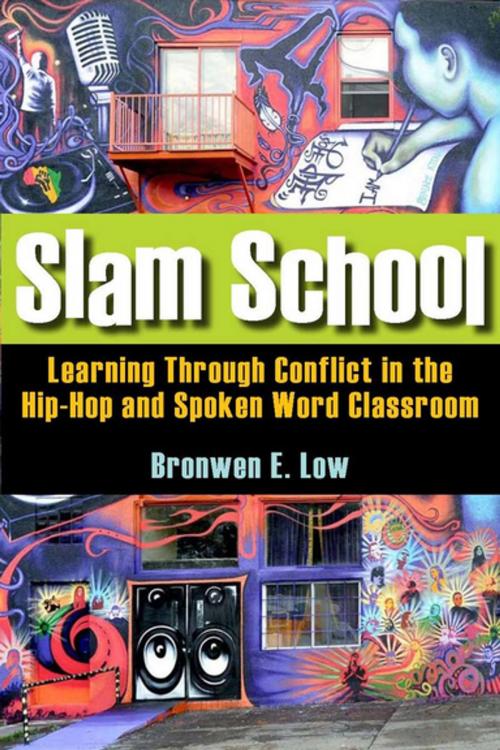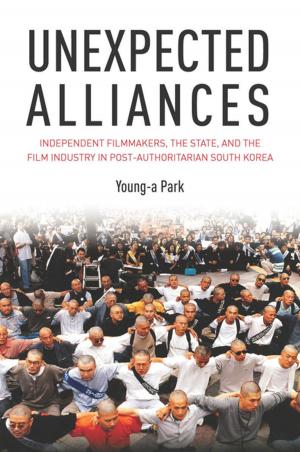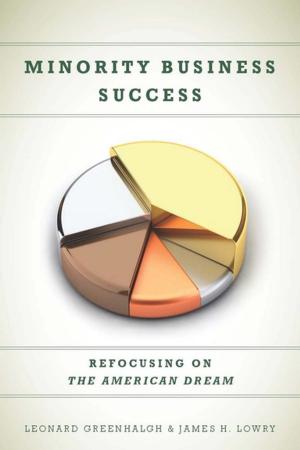Slam School
Learning Through Conflict in the Hip-Hop and Spoken Word Classroom
Nonfiction, Reference & Language, Education & Teaching| Author: | Bronwen Low | ISBN: | 9780804777537 |
| Publisher: | Stanford University Press | Publication: | March 22, 2011 |
| Imprint: | Stanford University Press | Language: | English |
| Author: | Bronwen Low |
| ISBN: | 9780804777537 |
| Publisher: | Stanford University Press |
| Publication: | March 22, 2011 |
| Imprint: | Stanford University Press |
| Language: | English |
Mainstream rap's seductive blend of sexuality, violence, and bravado hardly seems the stuff of school curricula. And chances are good that the progressive and revolutionary "underground" hip-hop of artists such as The Roots or Mos Def is not on the playlists of most high-school students. That said, hip-hop culture remains a profound influence on contemporary urban youth culture and a growing number of teachers are developing strategies for integrating it into their classrooms. While most of these are hip-hop generation members who cannot imagine leaving the culture at the door, this book tells the story of a white teacher who stepped outside his comfort zone into the rich and messy realm of student popular investments and abilities. Slam School takes the reader into the heart of a poetry course in an urban high school to make the case for critical hip-hop pedagogies. Pairing rap music with its less controversial cousins, spoken word and slam poetry, this course honored and extended student interests. It also confronted the barriers of race, class, gender, and generation that can separate white teachers from classrooms of predominantly black and Latino students and students from each other. Bronwen Low builds a surprising argument: the very reasons teachers might resist the introduction of hip-hop into the planned curriculum are what make hip-hop so pedagogically vital. Class discussions on topics such as what one can and cannot say in the school auditorium or who can use the N-word raised pressing and difficult questions about language, culture and identity. As she reveals, an innovative, student-centered pedagogy based on spoken word curriculum that is willing to tolerate conflict, as well as ambivalence, has the potential to air tensions and lead to new insights and understandings for both teachers and students.
Mainstream rap's seductive blend of sexuality, violence, and bravado hardly seems the stuff of school curricula. And chances are good that the progressive and revolutionary "underground" hip-hop of artists such as The Roots or Mos Def is not on the playlists of most high-school students. That said, hip-hop culture remains a profound influence on contemporary urban youth culture and a growing number of teachers are developing strategies for integrating it into their classrooms. While most of these are hip-hop generation members who cannot imagine leaving the culture at the door, this book tells the story of a white teacher who stepped outside his comfort zone into the rich and messy realm of student popular investments and abilities. Slam School takes the reader into the heart of a poetry course in an urban high school to make the case for critical hip-hop pedagogies. Pairing rap music with its less controversial cousins, spoken word and slam poetry, this course honored and extended student interests. It also confronted the barriers of race, class, gender, and generation that can separate white teachers from classrooms of predominantly black and Latino students and students from each other. Bronwen Low builds a surprising argument: the very reasons teachers might resist the introduction of hip-hop into the planned curriculum are what make hip-hop so pedagogically vital. Class discussions on topics such as what one can and cannot say in the school auditorium or who can use the N-word raised pressing and difficult questions about language, culture and identity. As she reveals, an innovative, student-centered pedagogy based on spoken word curriculum that is willing to tolerate conflict, as well as ambivalence, has the potential to air tensions and lead to new insights and understandings for both teachers and students.















